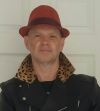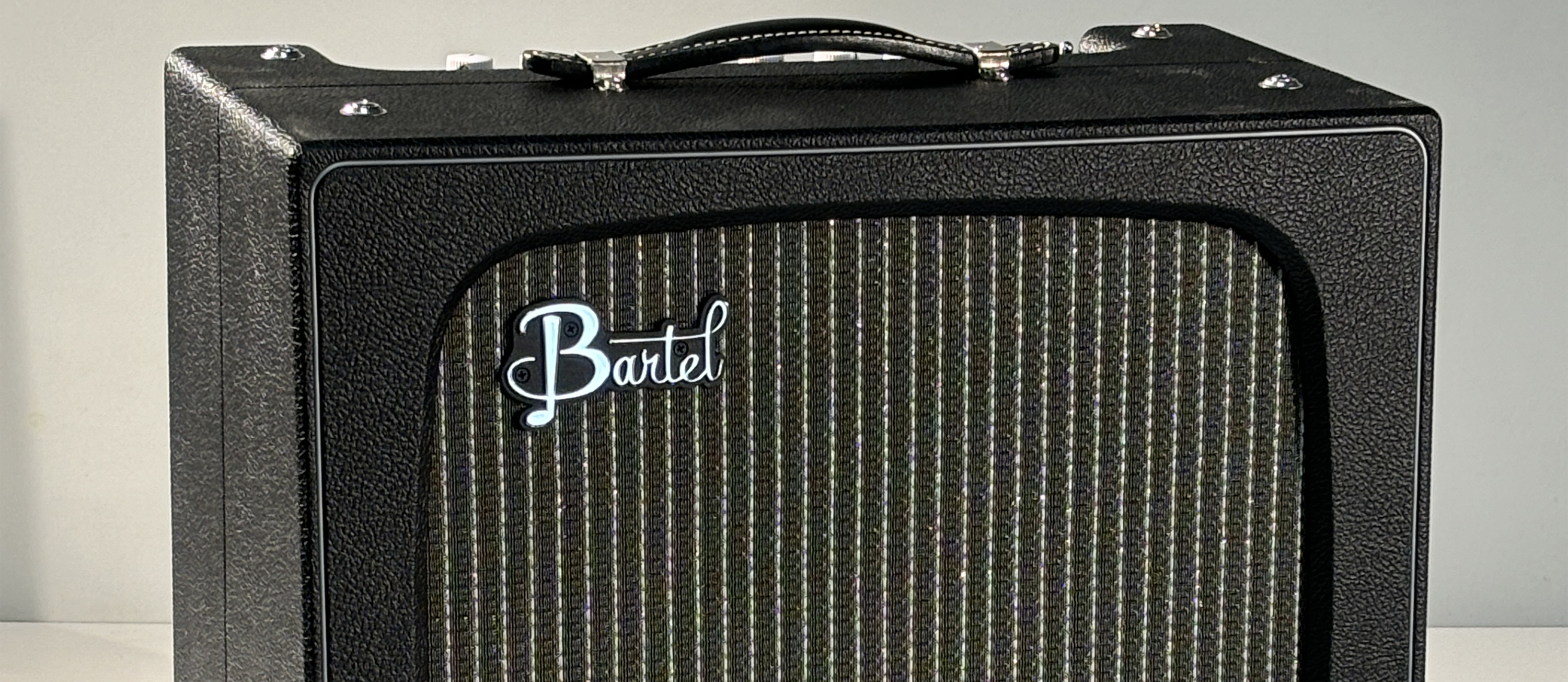“It’s Our Career-Best Album”: Def Leppard Return With the Glam-Inspired ‘Diamond Star Halos’
Following a seven-year absence, Phil Collen explains how the band got it on like the old days.

All the latest guitar news, interviews, lessons, reviews, deals and more, direct to your inbox!
You are now subscribed
Your newsletter sign-up was successful
Def Leppard’s new album, Diamond Star Halos (Universal UMC), their first since Def Leppard in 2015, is swathed in 1970s influences, from its classic Marc Bolan-quoting title to stomping retro rockers like the lead track, “Kick.”
Leppard have never been afraid to proudly wear their influences on their sleeves, whether it be on Yeah!, their 2006 collection of ’70s covers, or their 1994 hit remake of Sweet’s “Action.”
Recorded individually by band members in their own home studios, Diamond Star Halos’ 15 tracks have all the power and glory of the multimillion-selling monsters Hysteria and Adrenalize.
The group’s extremely stable lineup still features guitarists Phil Collen and Vivian Campbell, singer Joe Elliott, bassist Rick Savage and drummer Rick Allen.
Collen took time out to speak with Guitar Player about the making of Diamond Star Halos and reflect on his 40th year in the band.
He is understandably excited at the prospect of taking the record out on the band’s first tour since lockdown, headlining at stadiums across the States with Mötley Crüe, Poison and Joan Jett as support acts.
Where would you place Diamond Star Halos in your catalog?
All the latest guitar news, interviews, lessons, reviews, deals and more, direct to your inbox!
I actually think it’s our career-best album on a number of levels. Our last record, Def Leppard, almost felt like it was our first, in a way, as it was done without any kind of agenda. We weren’t trying to get on the radio and have hits, et cetera, and this one felt like a real step up again from there.
For me and Joe, the era that we became baptized into music, so to speak, was really between 1971 to 1975
Phil Collen
The album’s title references a line from the T. Rex hit “Bang a Gong (Get It On).” Fittingly, the album has numerous ’70s references.
Without a doubt. For me and Joe, the era that we became baptized into music, so to speak, was really between 1971 to 1975. This is actually almost a concept album in a way, although we didn’t realize that at first as we were recording it, but it is so ’70s.
We even have Mike Garson, who appeared on some of David Bowie’s great glam-era albums, playing piano on a couple of tracks.
My solo on “Goodbye for Good This Time” was a deliberate nod to Mick Ronson’s influence and his playing on tracks like “Lady Grinning Soul.”
My end solo on “From Here to Eternity” was based on a Ritchie Blackmore feel. There are numerous ’70s references that definitely come through all over the album.
American audiences may not recognize how big an influence the glam-rock era was on so many bands. Aside from Bowie, it was more of an underground thing there and had more of an impact on New York City punk acts like the New York Dolls.
Yeah, exactly. You had to be in the U.K. to really understand the impact of that era. I remember how significant it was to see Bowie performing “Starman” on Top of the Pops, and how huge an effect that moment had.
I’d already been into Deep Purple and bands like that, but when I was 14 and saw Bowie on the TV, it really spoke directly to me, and Joe was exactly the same.
A lot of people don’t realize how great someone like Marc Bolan was
Phil Collen
A lot of people don’t realize how great someone like Marc Bolan was. That level of genius, you know?
We believe the new album was recorded individually by each band member in their own home studios.
Yes that’s right. Although my home studio is actually my living room table. [laughs] I’ve been using Guitar Rig 5 for many years now. The Man Raze album that I did in 2011 [PunkFunkRootsRock] was recorded with the same presets as this record.
I’d record ideas, pretty much as a demo usually, then send them to Joe and also to our producer, Ronan McHugh. We didn’t ever get too glossy.
On the song “Kick,” for example, we just left my demo guitars on because they had such a great vibe. For the backing vocals on that, I actually did them here in my living room on a hand-held Shure SM58. It just sounded great, so we kept it.
Normally we’d have refined parts a little bit, but we didn’t on this album; we kept it raw. Everyone did the same thing with their parts. Joe actually did the lead vocal for the song “This Guitar” on his laptop’s microphone.
It is ironic, I guess, that this was recorded for a fraction of the budget of Hysteria, but sonically there isn’t anything to choose between them, which says a lot about how technology has advanced.
It really does, and I’d really like to say to anyone: As long as you know what you’re putting down, you have a good clean version and the performance is great – and you have someone who knows what they’re doing in the mixing process – then you can achieve something that really satisfies your creative, artistic intent.
We were able to keep our demos, with the spirit intact
Phil Collen
With the way that we worked, we were able to keep our demos, with the spirit intact, rather than having to redo them to achieve a better sound quality and lose some of the spark in the process.
In terms of recording gear, presumably you are still plugging straight into the computer.
Yeah, there isn’t a single amp on there, or on the last album. The last few albums that I’ve recorded have all been with Guitar Rig 5. I only have a Focusrite Scarlett interface as well. Nothing fancy.
Were there any new guitars this time around?
I did use some different stuff this time. During lockdown I’d ordered a few different, cheaper guitars. Squier had done a reissue of the Starcaster, which I used for the intro to “This Guitar.”
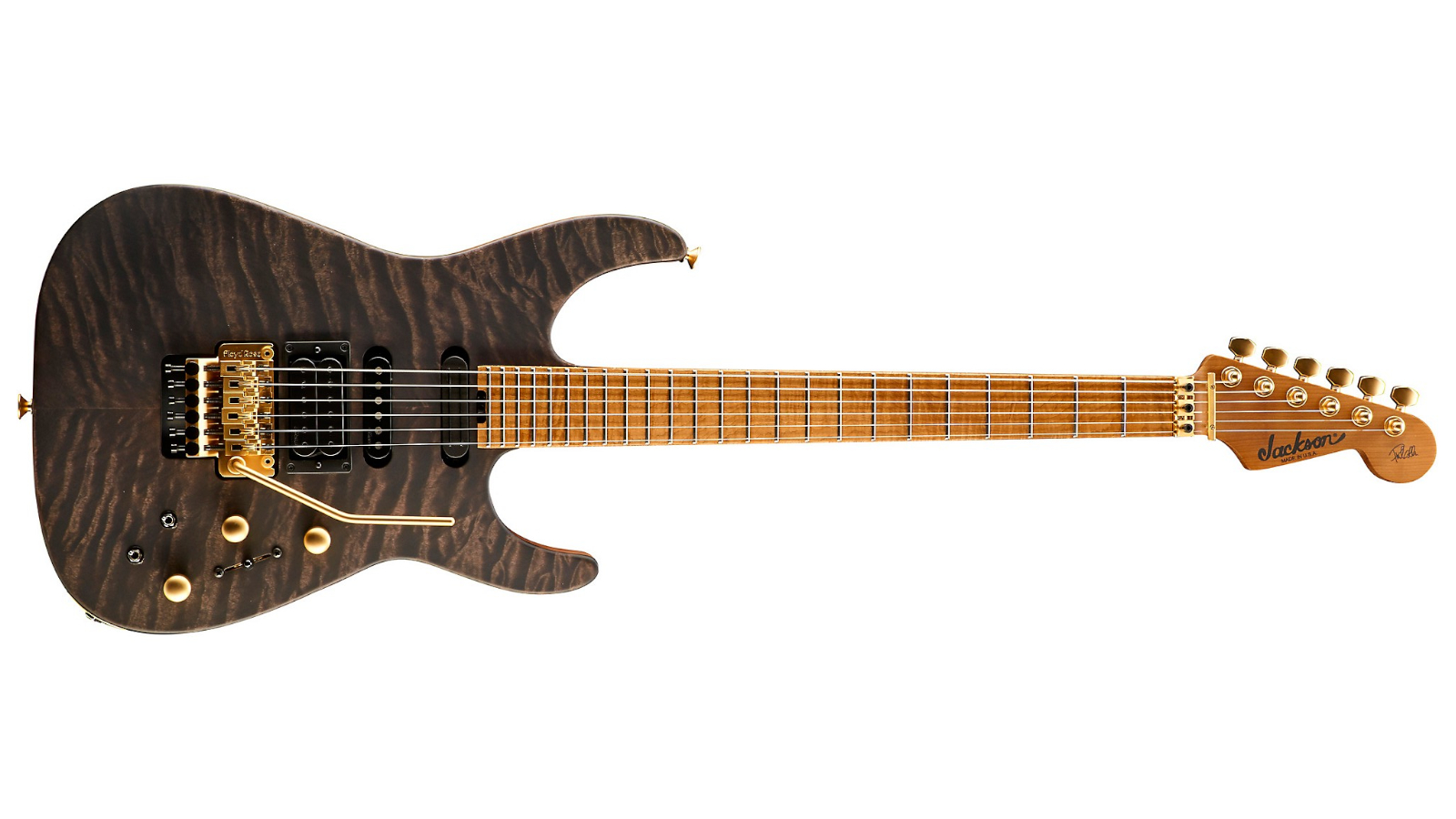
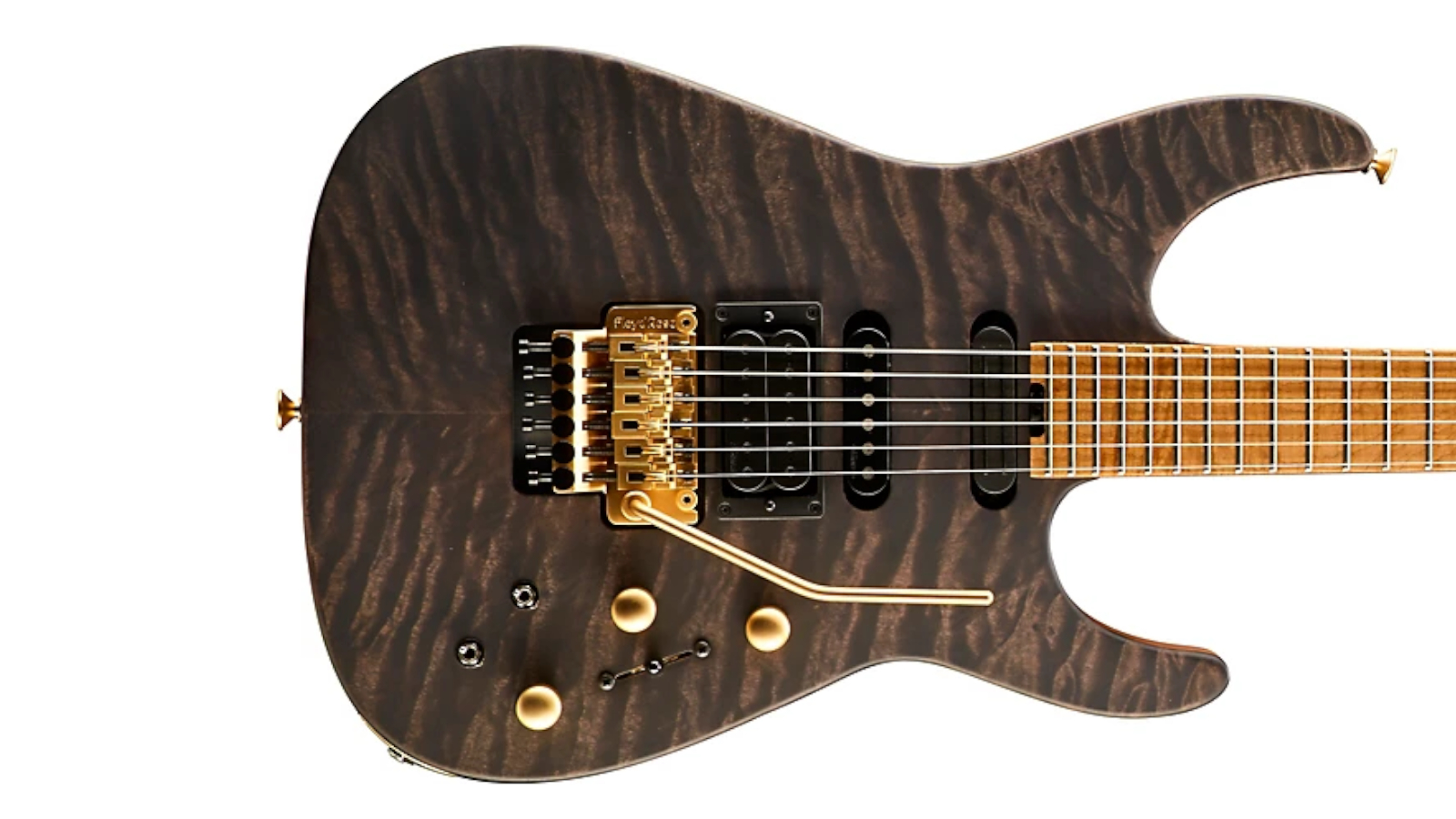
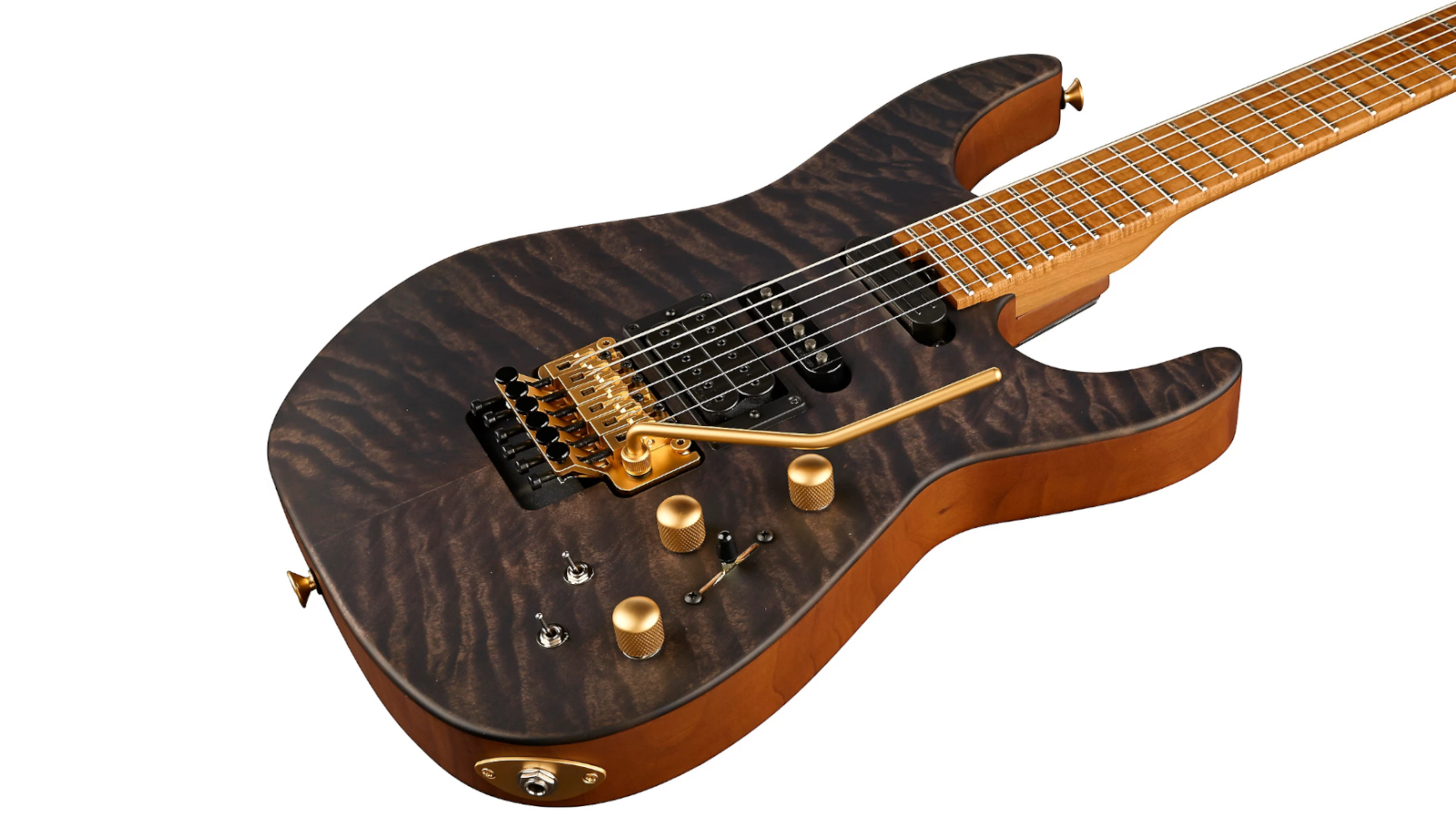
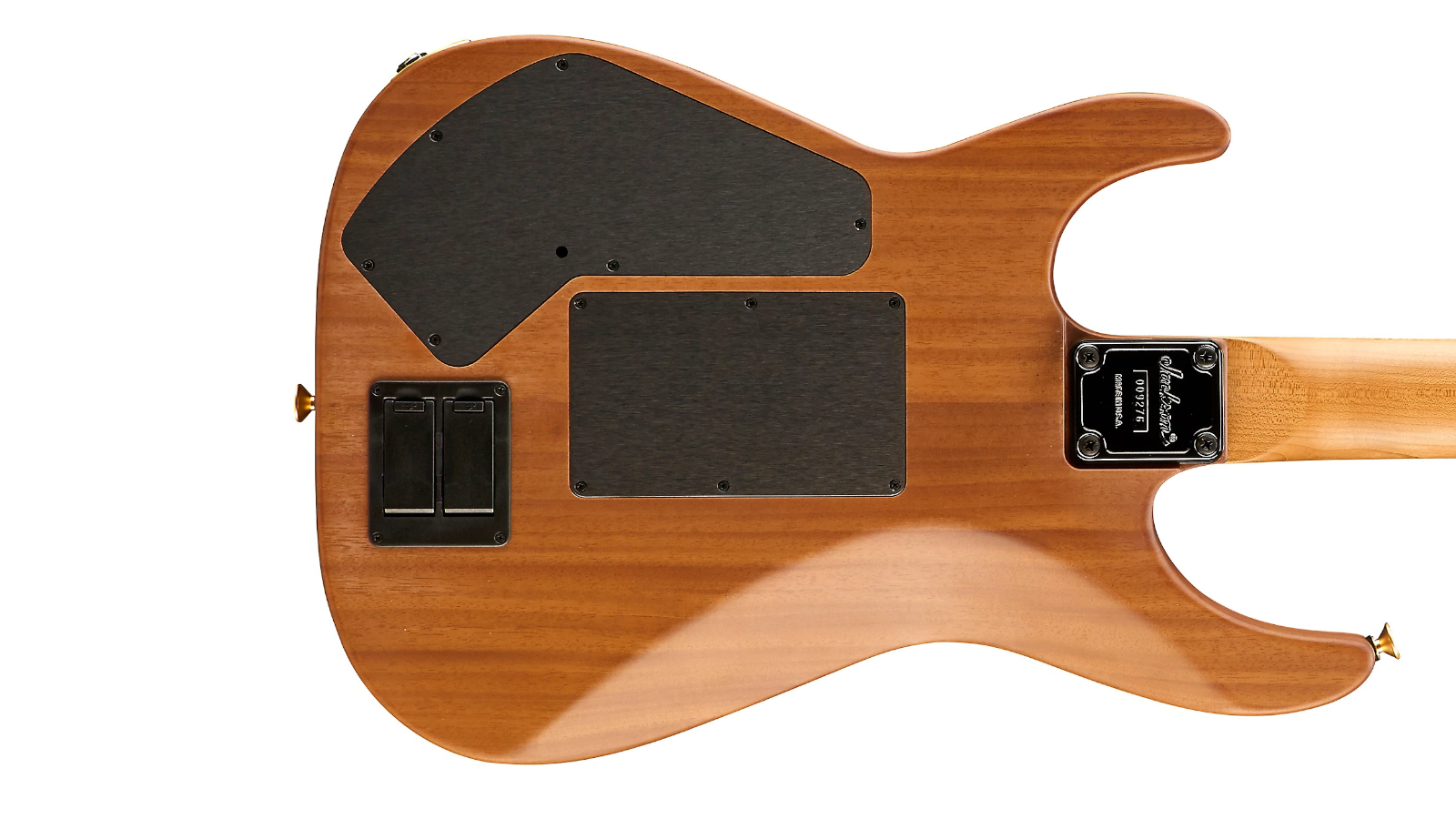
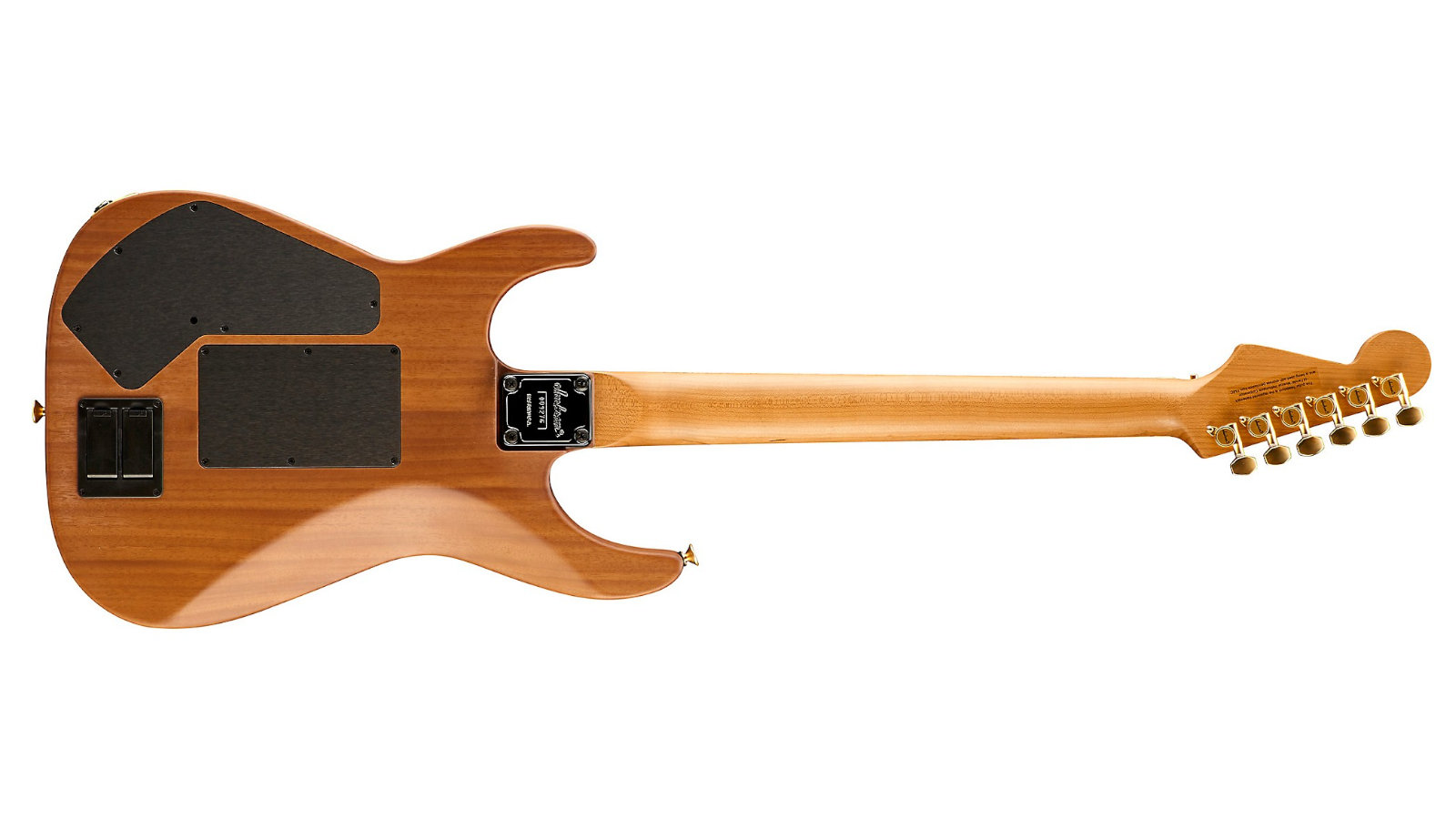
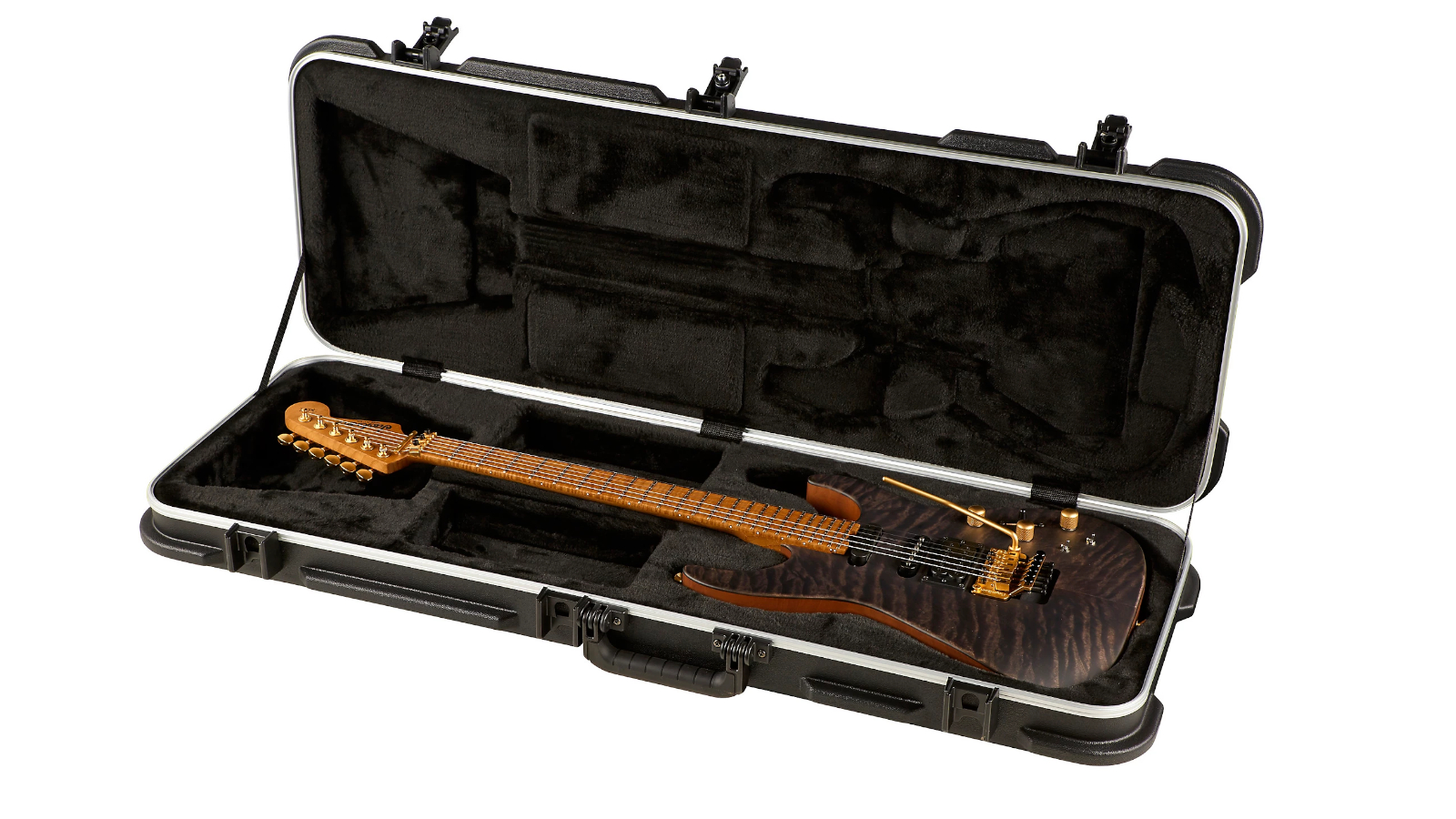
For the solo, I used a Squier Telecaster, which I played on a bunch of albums in years gone by. It’s a really cool guitar. It is just literally as I bought it. I didn’t change anything, and it sounds great.
Other than that I used my newest signature Jackson PC1.
I bought two basses over lockdown – a Squier Precision and an Epiphone EB-3. I was just really curious to see what they’d sound like for when I’m recording demos. They both sounded really good, particularly the Squier, which is particularly interesting when you think how cheap they are to buy, and they were great straight out of the box.
What is interesting about this album, and indeed most of the previous Leppard albums, is that there are guitars everywhere, but nothing ever sounds cluttered. There is always a great sense of each part existing in its own space.
Well, with this album, most of the stuff was written by me and Joe, either separately or together, but from the get-go, you write with the vocal in mind.
The song is the reason for everything
Phil Collen
On that initial level, it becomes pretty obvious where a certain degree of space needs to exist anyway. But Viv and I know each other’s playing pretty well, and we know what works for the song. The song is the reason for everything.
In terms of who takes a solo on a particular song, is that a fairly organic process, or do you debate who’d be best for it?
It just works itself out. We don’t plan it, but if someone hasn’t done a solo for a few songs, then we tend to think it’s the other person’s turn, but it’s never really thrashed out as such.
“Kick” really makes a strong 1970s glam statement.
Yeah, I wrote it with Dave Bassett [Shinedown, Halestorm, Daughtry], and when we started I had a rough idea of the chorus and the bpm of the track.
We’re always trying to write a stadium-rock classic like “We Will Rock You” or “I Love Rock ’n’ Roll,” which is actually pretty hard to pull off. It’s really easy to come up with something cheesy that just doesn’t sound authentic.
We went back to the feel of Slade, T. Rex, Gary Glitter and Mott the Hoople, and the track almost wrote itself.
“From Here to Eternity” almost sounds a little like a James Bond theme in parts.
Yeah, I know what you mean. Rick Savage wrote that one, and it felt like it already had its own identity from the start. We were discussing how it had a film noir vibe, and that developed as we recorded the song.
[“Lifeless”] has my favorite Vivian guitar solo
Phil Collen
The country feel on “Lifeless” is an unusual direction for the band.
That has my favorite Vivian guitar solo. He played that on a Telecaster. When I started writing it. I definitely had a Stonesy vibe in my mind, maybe a little like if U2 were to play a country song perhaps.
I recorded a lot of the parts on my PC1, and I was getting a Tele sound anyway, but Vivian’s solo just really nailed it for this one.
There is a very trippy, Beatles vibe to “Liquid Dust.”
Yes, it has a very Eastern/Indian feel to it, which I guess is what suggests the Beatles in the late ’60s, when they were embracing psychedelia.
That song is actually about reincarnation, and I wanted the music to mirror that otherworldly idea.
What is the instrument that sounds like a mandolin at the start of “U Rok Mi”?
That’s actually a ukulele. I bought it for my daughter Samantha a few years ago. Then my other two daughters wanted one, so everybody got one, and then everyone in the band got one. [laughs]
I just started playing around with the riff, and then it turned into this song.
It’s an interesting track, as it has a Led Zep “Going to California” feel at the start before morphing into almost a hip-hop bass-led stomp on the verses. It covers a lot of stylistic territory.
Yeah, it does. It has that almost-folk Zep thing going on, but then just as you’re getting comfortable, it wrong-foots you and changes gear and direction, which I love to do in a song.
Thinking back to the ’70s, the Precision was all over most of those great records
Phil Collen
We think this record has the best bass sound Rick [Savage] has had on a Leppard album, particularly on “Open Your Eyes” and “Gimme a Kiss.”
I absolutely agree. What is interesting is that I actually said that to Sav, that it was the best sound he’d ever had.
The funny thing is that, because we were all recording at home, with whatever instruments we had to hand, we were often using things we wouldn’t normally take into the studio.
Sav was just using his old Fender Precision, which had been sitting around the house for years. But again, thinking back to the ’70s, the Precision was all over most of those great records.
Will the upcoming tour be the first time you’ve played in a stadium since lockdown?
It will be the first time we’ve played live at all since then. It’s going to be a very strange feeling at first, I’m sure. Really weird.
It’s been seven years since the last album. Are you anticipating a similar interval until the next one.
No. Me and Joe got on such a roll writing for this record – which is essentially a double album – that we still had a few more tracks on hand, one of which we completely finished. That never normally happens when we record an album.
We usually use up everything we’ve got, and sometimes we’ll even be trying to come up with material at the last minute while we’re in the middle of recording.
We could have actually kept going, recording more songs. We really seem to have found a new lease on life as a band. We’ve started working on the next album already.
We’ve started working on the next album already
Phil Collen
We’re able to be this big rock band and get all the upside of that, and we’re so grateful for that and all the opportunities it brings.
This is your 40th year in the band. I guess it would have sounded pretty surreal if someone had suggested to you back in 1982 that you’d be discussing your music 40 years later.
It’s really weird and scary to contemplate the passing years. I would never have thought we’d still be playing to this level so far down the line, with stadium tours selling out. What is interesting is that it is more exciting now than at any other time in our career.
Joe and I were doing an interview with a radio station last week, and we were both saying that the old cliché that youth is wasted on the young really is true.
You appreciate everything so much more this far down the line, and that, combined with all the years of experience, makes everything so much more rewarding.
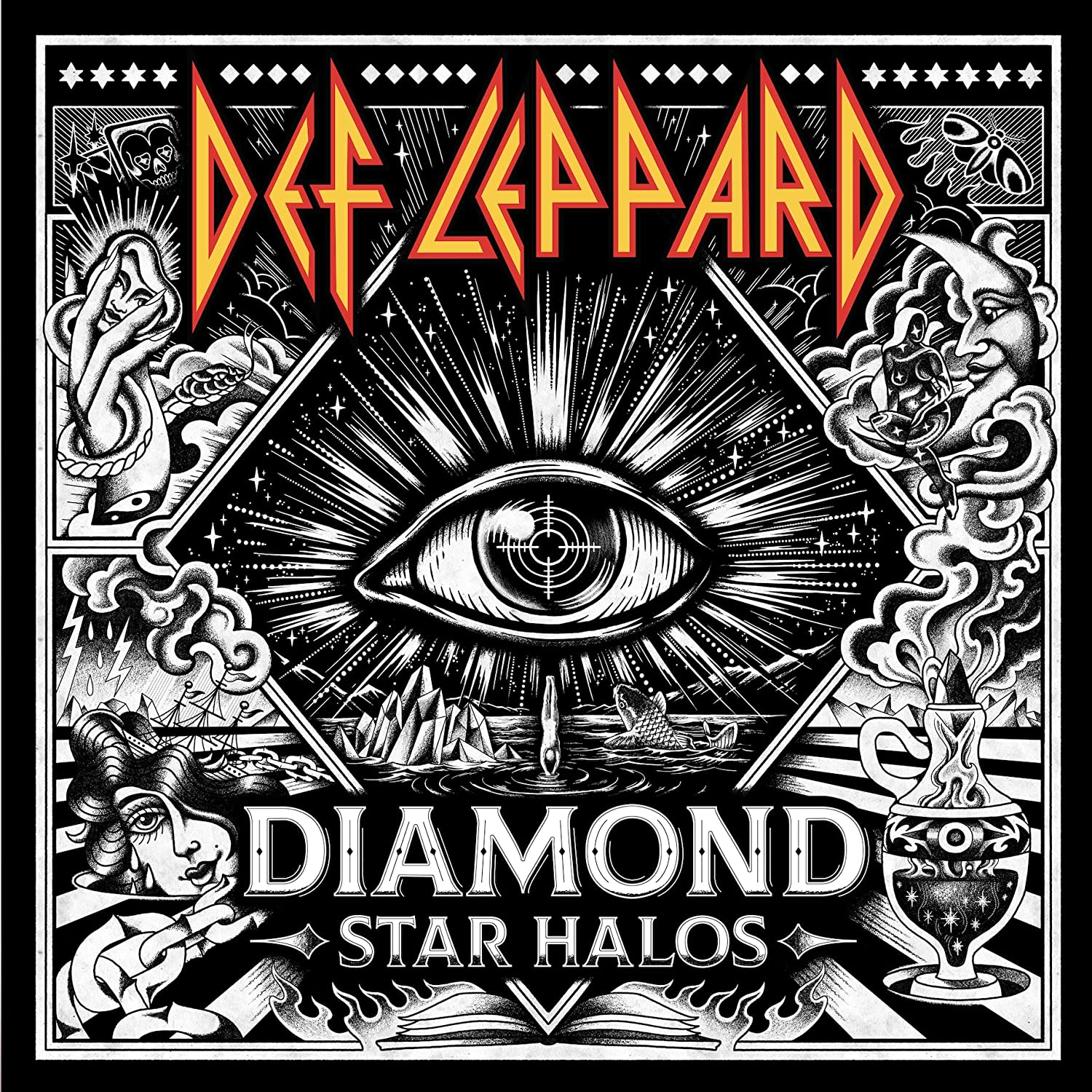
Order Diamond Star Halos here.
Mark is a freelance writer with particular expertise in the fields of ‘70s glam, punk, rockabilly and classic ‘50s rock and roll. He sings and plays guitar in his own musical project, Star Studded Sham, which has been described as sounding like the hits of T. Rex and Slade as played by Johnny Thunders. He had several indie hits with his band, Private Sector and has worked with a host of UK punk luminaries. Mark also presents themed radio shows for Generating Steam Heat. He has just completed his first novel, The Bulletproof Truth, and is currently working on the sequel.
